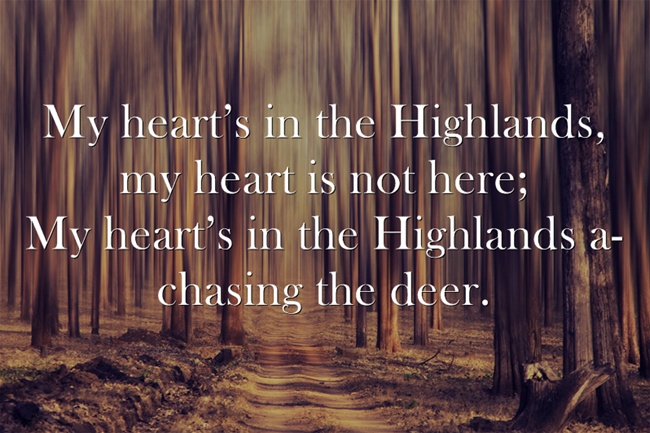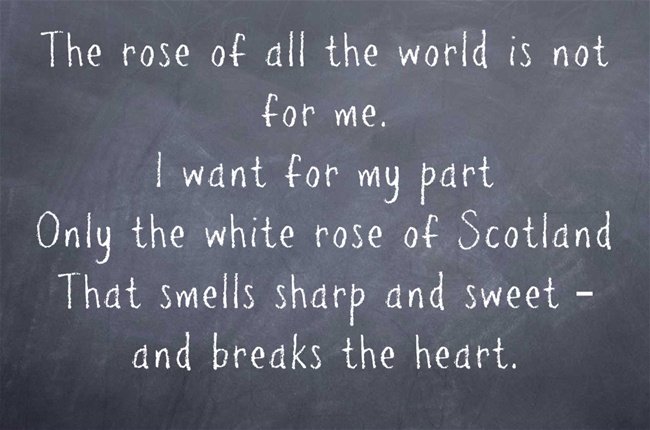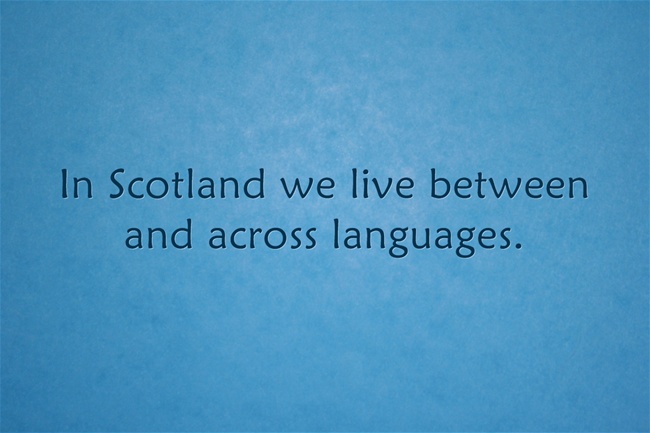30 November is St Andrew’s Day, but who was St Andrew? The apostle and patron saint of Scotland, Andrew was a fisherman from Capernaum in Galilee. He is rather a mysterious figure, and you can read more about him in the Oxford Dictionary of National Biography. St Andrew’s Day is well-established and widely celebrated by Scots around the world. To mark the occasion, we have selected quotations from some of Scotland’s most treasured wordsmiths, using the bestselling Oxford Dictionary of Quotations and the Little Oxford Dictionary of Quotations.
There are few more impressive sights in the world than a Scotsman on the make.
J. M. Barrie 1860-1937 Scottish writer

- Robert Burns 1759-96 Scottish poet
From the lone shielding of the misty island
Mountains divide us, and the waste of seas –
Yet still the blood is strong, the heart is Highland,
And we in dreams behold the Hebrides!
John Galt 1779-1839 Scottish writer
O Caledonia! Stern and wild,
Meet nurse for a poetic child!
Sir Walter Scott 1771-1832 Scottish novelist

- Hugh MacDiarmid 1892-1978 Scottish poet and nationalist
O flower of Scotland, when will we see your like again,
that fought and died for your wee bit hill and glen
and stood against him, proud Edward’s army,
and sent him homeward tae think again.
Roy Williamson 1936-90 Scottish folksinger and musician
I love a lassie, a bonnie, bonnie lassie,
She’s as pure as the lily in the dell.
She’s as sweet as the heather, the bonnie bloomin’ heather –
Mary, ma Scotch Bluebell.
Harry Lauder 1870-1950 Scottish music-hall entertainer

- Robert Crawford 1959– Scottish poet
My poems should be Clyde-built, crude and sure,
With images of those dole-deployed
To honour the indomitable Reds,
Clydesiders of slant steel and angled cranes;
A poetry of nuts and bolts, born, bred,
Embattled by the Clyde, tight and impure.
Douglas Dunn 1942– Scottish poet
Who owns this landscape?
The millionaire who bought it or
the poacher staggering downhill in the early morning
with a deer on his back?
Norman McCaig 1910–96 Scottish poet
The Little Oxford Dictionary of Quotations fifth edition was published in October this year and is edited by Susan Ratcliffe. The Oxford Dictionary of Quotations seventh edition was published in 2009 to celebrate its 70th year. The ODQ is edited by Elizabeth Knowles.
The Oxford DNB online has made the above-linked lives free to access for a limited time. The ODNB is freely available via public libraries across the UK. Libraries offer ‘remote access’ allowing members to log-on to the complete dictionary, for free, from home (or any other computer) twenty-four hours a day. In addition to 58,000 life stories, the ODNB offers a free, twice monthly biography podcast with over 130 life stories now available. You can also sign up for Life of the Day, a topical biography delivered to your inbox, or follow @ODNB on Twitter for people in the news.
Subscribe to the OUPblog via email or RSS.
Subscribe to only language, lexicography, word, etymology, and dictionary articles on the OUPblog via email or RSS.
View more about the Little Oxford Dictionary of Quotations on the ![]()
![]()
View more about the Oxford Dictionary of Quotations on the ![]()
![]()




My favorite art breaks rules. That's true of books as much as other art forms. Now, sometimes the breaches are just something less than great writing. Sometimes the rules aren't really rules at all. Other times, the rule breaking is a writer going big.
Plus, there's plenty of room in the literary world, like there is in other art forms, for works that are purely meant to entertain. I read both literary classics and more plot-driven entertainment, and enjoy both. I prefer well-written books with great stories and aim for that middle when I write, but there's room in my life for books all along the (mostly imaginary) spectrum.
When I see this debate I quote my favorite movie Pirates of the Caribbean when Barbossa says, "First, your return to shore was not part of our negotiations nor our agreement so I must do nothing. And secondly, you must be a pirate for the pirate's code to apply and you're not. And thirdly, the code is more what you'd call "guidelines" than actual rules. Welcome aboard the Black Pearl, Miss Turner."
And that sums up writing rules.